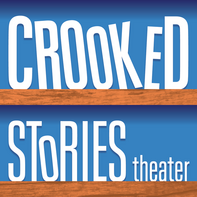In the previous post we talked about our method of outlining, which is to fall somewhere between the full-blown, no stone left unturned outline, and “we know the beginning and the end, let’s just write and see what happens” outline. We have a generally good idea of where we wanted to go with it, and so we needed to do a broad brush painting of each act.
Pretty much 95% of the screenplays out there are in three acts. You’ll see all these guidelines and screenwriting books that you must have three acts — it’s the way everyone does it. The first act needs to be about 30 pages, they say, the second act about 40, and the final act around 25, give or take. But if that doesn’t work for you, fine. Write what works for you. My only thing is that your story works, and you write it well.
If you are working in the three act structure, then the first act is for world-building. We learn about the characters, what relationships they have, and the world in which they exist. You also will typically will have what is known as the “inciting incident”, which pushes the protagonist into his or her story for the rest of the film.
With “Lake Regret” we will probably be following the three act structure, and so we need to do a little world building in the first draft of our outline.
We know we have our script set at a lake house, and we know a high school graduation party is going on throughout the film, so we have to start with getting our protagonist to the party, and introducing the main players (both the heroes and the villains) that will be driving the story.
We came up with five main characters and a couple of supporting characters to revolve the story around:
— Jimmy “Jinx” McCarthy, our main protagonist. Jinx is the kid that everyone used to like at his school, but ever since an accident caused the death of another student, he feels like he’s been shunned at the school, which may or may or not be imagined by Jinx. He’s created a world in which he feels like everyone’s against him, and is determined to leave this small town he’s grown up in forever now that he’s graduated.
— Ellie Burton, Jinx’s friend and someone that Jinx has had a crush on for years. She’s tried to build him up during his difficult time, but he’s still in a dark place. Despite the crush Jinx has on her, she may have eyes for someone else.
— Tate Oliver, the person who knows Jinx better than anyone. When he learns Jinx is trying to leave forever, he tries to be the voice of reason, and caution. But does Tate have an ulterior motive in keeping Jinx around?
— Hunter Callahan, who was a friend and football teammate of the student who died, and who is seeking revenge on Jinx. The question is how far he will take that revenge.
— Cassie Wilbanks, an attractive student that flirts with Jinx throughout the party and may sabotage any chance of a relationship between Jinx and Ellie.
Now that we’ve outlined our main characters, we need them to start interacting. Stay tuned to see where we take them…
_______________________
The further adventures of the screenwriting and marketing process of Lake Regret wherein Gary Howell documents his and Rick Hansberry’s screenwriting adventures from concept, to the writing, to how they handle disagreements, to marketing the script. Reproduced with permission





